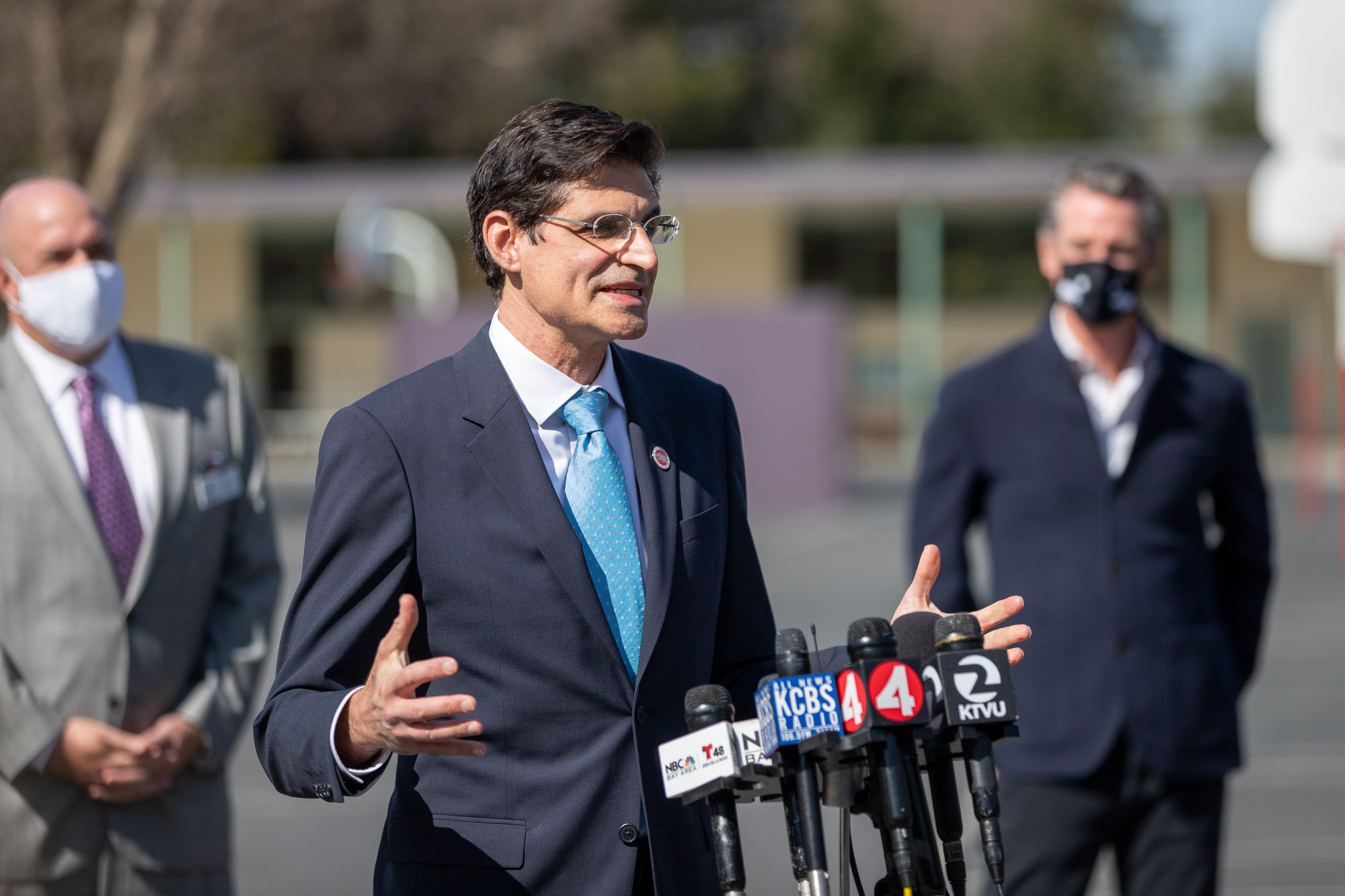California will work to bring all greenhouse-gas emissions from state agencies down to zero by 2035 under legislation that Gov. Gavin Newsom signed Friday morning.
Authored by state Sen. Josh Becker, Senate Bill 1203 will require each state agency to calculate its greenhouse-gas emissions, come up with a plan for achieving zero emissions and publish reports every two years that track progress toward the goal and include updated policies.
The bill cleared the state Senate on Aug. 30 by a 31-9 vote, a week after the state Assembly backed it by a 63-4 vote.
Becker, who announced the legislation at COP26 in Glasgow, Scotland, said in an interview Friday that the legislation has three goals. By requiring state agencies to invest more in clean energy technology, California could help lower the costs of these technologies for everyone. State agencies would also demonstrate to the rest of the state that the goal is achievable — a key consideration given Newsom's target to make the entire state carbon neutral by 2045.
Lastly, it would develop best practices for reducing emissions, which it would then be able to share to achieve further greenhouse-gas reductions.
"It will help create the market and show that it can be done," said Becker, who chairs the Senate Subcommittee on the Clean Energy Future and serves as vice chair of the Legislature's Joint Committee on Climate Change Policies.
SB 1203 is one of Becker's three clean-energy bills that Newsom signed into law on Friday. Another bill, SB 1158, will require every retail supplier of electricity to report the sources of their electricity and greenhouse-gas emissions associated with these sources. Becker said the electricity bill is the "operational piece" of the broader goal to reduce emissions because it will allow the state to determine the times when electricity is relying on fossil fuels.
This information is particularly key during the peak hours of 4-9 p.m., he said. The legislation will allow the state to "reward utilities that are doing well and we can further incentivize or punish folks who are not doing well."
"We don't get the benefits of electric vehicles or building electrification unless our grid is 100% clean," he said.
A third signed bill, which Becker co-authored with state Sen. Henry Stern, focuses on transmission lines. It requires the California Public Utilities Commission to provide guidance to the operator of the state's power system, the California Independent System Operator (CAISO), about renewable energy resources to make sure that it can plan for transmission facilities that would support these resources.
The legislation, known as SB 887, also establishes a state policy that "planning for new transmission facilities consider the goals of minimizing the risk of wildfire and increasing system-wide reliability and cost efficiency, among other goals," according to the legislative analysis.
The Becker bills are part of a sweeping package of about 40 climate change bills that Newsom signed into law on Friday. These include a bill by state Sens. Lena Gonzalez and Monique Limón to establish a setback distance of 3,200 feet between new oil wells and homes, schools, parks or businesses open to the public; a bill by Sen. John Laird to create clean-electricity targets of 90% by 2035, 95% by 2040 and 100% by 2045; and two bills relating to carbon removal and carbon capture.
Becker called the package of climate-change bills a "great comeback" for the Legislature, noting that the setback bill didn't even get out of committee last year and that the bill setting the goal of 100% clean energy by 2045 only received 14 votes in the Senate back then. This year, it advanced by a 31-9 vote.
Newsom, who signed the bills in Vallejo, said in a statement that this month has been "a wake-up call for all of us that later is too late to act on climate change."
"California isn't waiting anymore," Newsom said. "Together with the Legislature, California is taking the most aggressive action on climate our nation has ever seen. We're cleaning the air we breathe, holding the big polluters accountable, and ushering in a new era for clean energy. That's climate action done the California Way — and we're not only doubling down, we're just getting started."



Comments